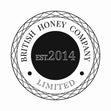You have no items in your shopping cart.
Our limited edition KEEPR's Platinum Jubilee Gin is infused with Windsor Great Park Honey - a special one-off creation to commemorate this unique historic occasion.
We spoke to beekeeper Jim Cooper about the story of his honey - where it comes from and what it tastes like - and his lifelong experience of keeping bees.

How did you get into beekeeping?
When I was eleven years old my father and I went on a course together in Suffolk. The tutor was the renowned beekeeper called Ted Hooper. Shortly after the course we obtained our first nucleus of bees in our back garden. We made loads of mistakes but fortunately we learnt from them and became better beekeepers with the experiences of our errors!
What would you say is the best thing about being a beekeeper?
There is so much we still don’t know about bees and after 40 years I’m still learning new knowledge about these fascinating insects. Keeping bees well is hard work and requires dedication but the satisfaction of a good honey crop is just so rewarding.

What does an average day look like for a beekeeper?
It starts with reading my notes from my previous visit to the bees and thinking ahead as to the equipment I am likely to need at the apiaries. There’s nothing worse than driving to the bees and discovering you haven’t taken a vital bit of kit with you. As I am now keeping a large number of colonies I work at speed and have learnt to quickly evaluate what I’m seeing in the hive. The key is to try and
understand the state of the colony and anticipate what they need to continue
to build up and create a honey crop. This could be adding more space in the
form of honey supers (used to collect the honey), adding frames of stores if there is a nectar dearth or replacing failing queen bees.
Apiary hygiene is important so I try not to drop any wax or honey which could encourage robbing between hives. I also wash my hands and hive tools between colonies. Having inspected a colony I will make notes in my folder to record my observations.
What would you say is the best thing people can do to help the preservation
of British bees?
Plant wild flower seed and stop mowing the lawn or treating it with herbicides or pesticides. Since doing this myself I now have the most fantastic display of white clover in my lawn and the bees love it.

How many bees/hives do you have at Windsor Great Park?
It varies from season to season but I generally try to keep no more than 10 hives in an apiary. Some apiaries have sufficient forage to support more and others less.
What wildflowers do they feed on?
In spring it is mainly field maple, cherry blossom and dandelion. The summer flow is principally from the lime trees and blackberry bushes.
What does Windsor Great Park honey taste like?
Fantastic – but I would say that! My favourite is the summer honey when the lime trees have had a nectar flow. It’s a fresh, slightly minty honey.
How long have you been looking after bees there?
This is only my second season at Windsor Great Park so I’m still learning what the typical forage and timings of the flows are in the locality. I also have bees in Maidenhead, Bray, Burnham and Paley Street.







